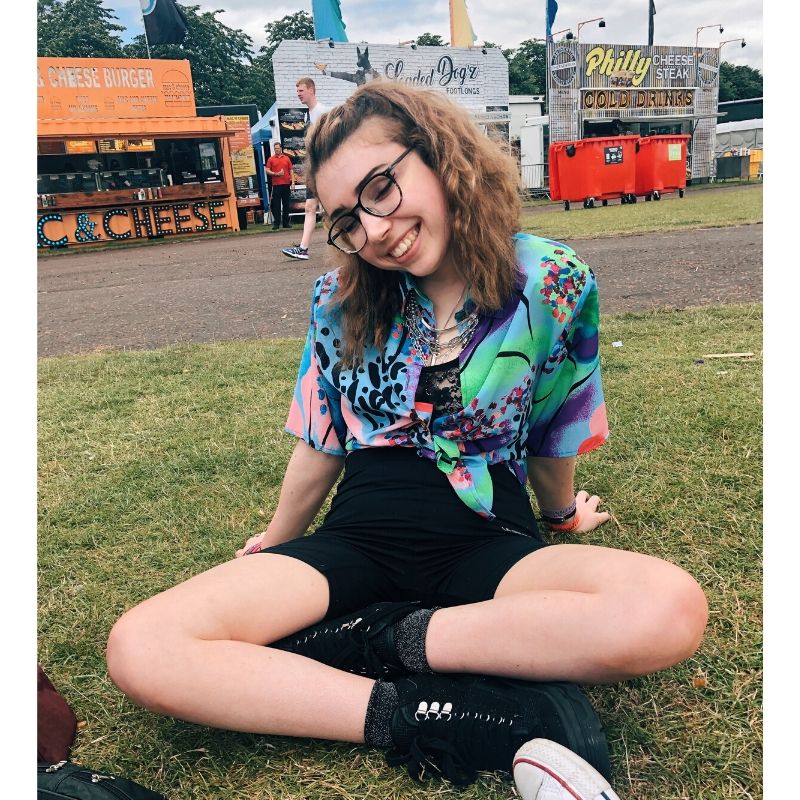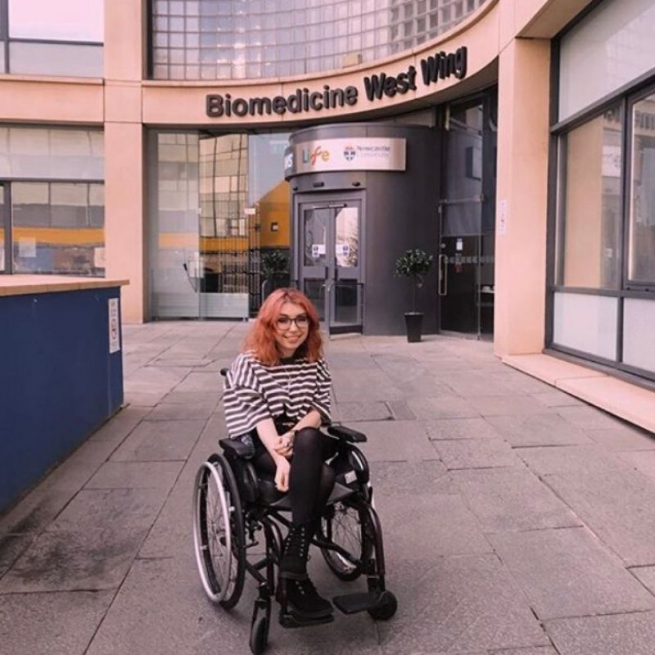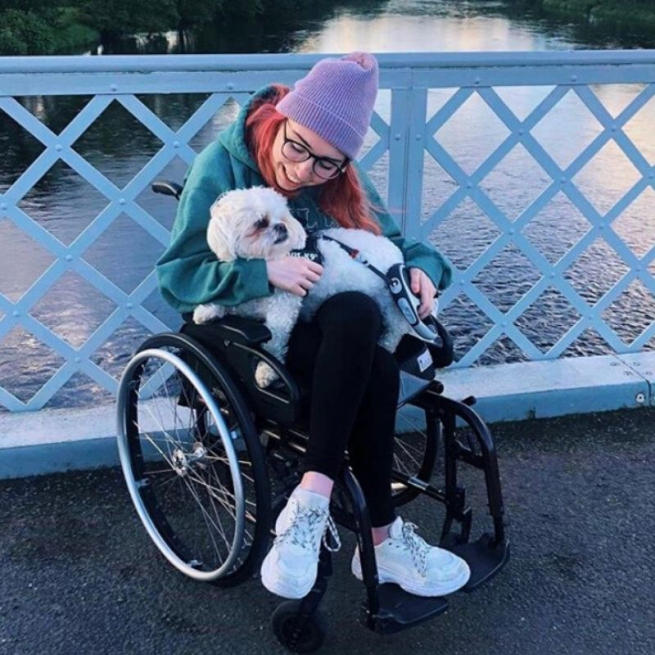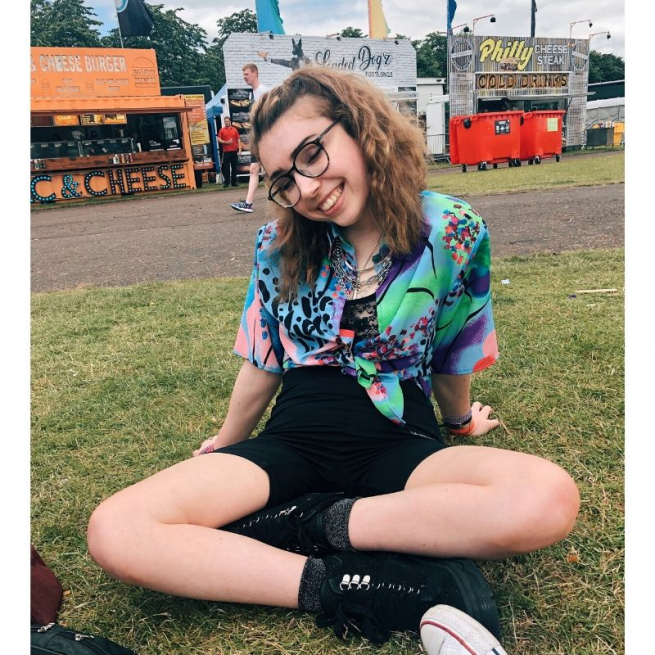
A guest blog by Georgia Hart, a 22 year-old from the North East of England who loves painting and cherry Pepsi Max. Georgia was diagnosed with a genetic condition called Friedreich’s Ataxia (FA) when she was fifteen. FA is a progressive, neurological condition affecting the nervous system and causing movement problems. Other complications of Georgia’s condition include scoliosis, heart disease and pes cavus.
Georgia is keen to speak honestly about disability related topics ‘after realising most media outlets only offer toxic positivity to ‘help’ disabled people.’

I spent the first chunk of my life leading a seemingly ‘normal’ life.
With hindsight, I can say the last few years leading up to my diagnosis were chaos, summed up by me trying to navigate my teen years, whilst suppressing a whole host of symptoms. Constantly tripping over things that weren’t there, dropping or breaking everything I touched and being confused why everyone else could walk on the pavement without falling off the curb.
My diagnosis was handed to me by accident, I wasn’t searching for anything as me and those around me shared the same ignorance as the majority of people, I was too young for it to be anything serious! But now I am in a unique position of being able to directly compare my old ‘healthy’ life with my newer ‘unhealthy’ life.
Fear, Comments and my Mental Health

Sometimes, it feels like I come with an expiry date, or at the very least my illness does. I can feel people’s frustrations when they ask me how I’m doing and my response is “the same” or “no change”. The fear that I might get put back on the shelf if I don’t start to get better. When someone asks a disabled person how they are, they want to hear of positive developments, they want to hear how they are overcoming adversity and what they are doing to ‘fight’ their condition. This sounds like a minor misconception, but it is one that has taken a toll on my mental health. Feeling like I am disappointing people over and over again because my timeline with a progressive disease looks very different to someone’s timeline recovering from an injury. People seem unable to think about what it’s like to live with something that won’t improve.
Learning to Validate My Own Mental State
A huge turning point for me was learning to change how I responded to my own emotions. In the past, I’ve often been angry at myself for letting my health negatively affect my mood. I have tried to alter my thought processes with affirmations like “it could be worse” or “at least you don’t have this”, with the rational that feeling down was a waste of time.

But the truth is, learning to validate my own mental state and allowing myself to feel things without guilt, blame or judgement is the best thing I could have done. Some days that’s grief, uncertainty, sadness and anxiety … but it’s also a lot of happiness, pride and gratitude.
My human experience is so vastly different to that of my close friends, as I have never had to fully grow up.
I am the only 22 year old I know who is still not trusted to hold an iron. When I was fifteen I was starting to think about moving away for university and what I wanted to do with my future, but a couple of months later I received my diagnosis and what I wanted changed. I know I speak from a place of privilege when I say I’ve never had to worry about bills, working at a job I hate or being able to support myself. Of course this is a good thing, to not have any expectations forced on me but I have learnt the hard way that I still have to expect things of myself. It is important for ANYONE’S wellbeing to be able to feel they are contributing to the world, even if not in the conventional way.
Living Life to the Full
I often find people speak to me as if I should be waiting on a cure, I first noticed this from doctors who would phrase things like “when we sort this…” or “once we’ve got rid of this…” I am not going to pretend a cure would not be a great thing, but it is not something I need to start living. It’s a natural cycle for us as humans to put ourselves in, always reaching for what we don’t have before we’ve fully appreciated what we’ve already got. “When I win the lottery I will be happy, when I fall in love…, when I start a family…, when I get my degree…, etc”.
Disability or not, young or old, stop waiting around for things that may never happen and do it now.
Georgia x
